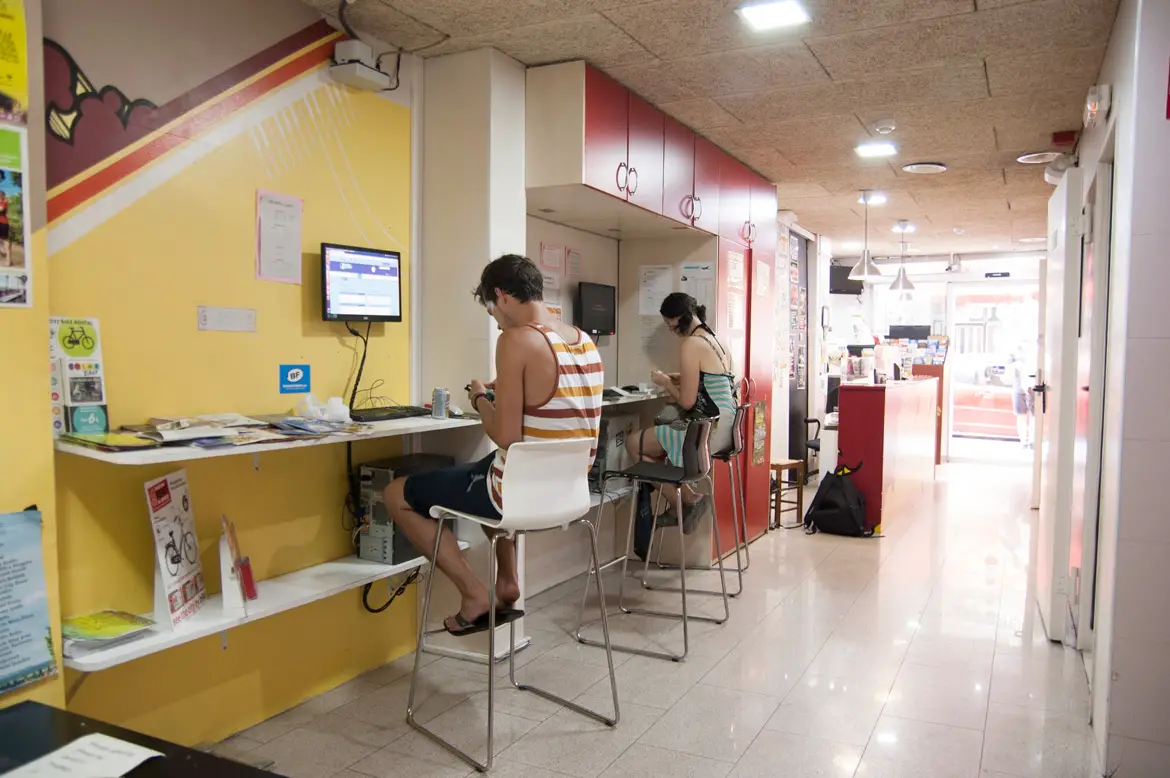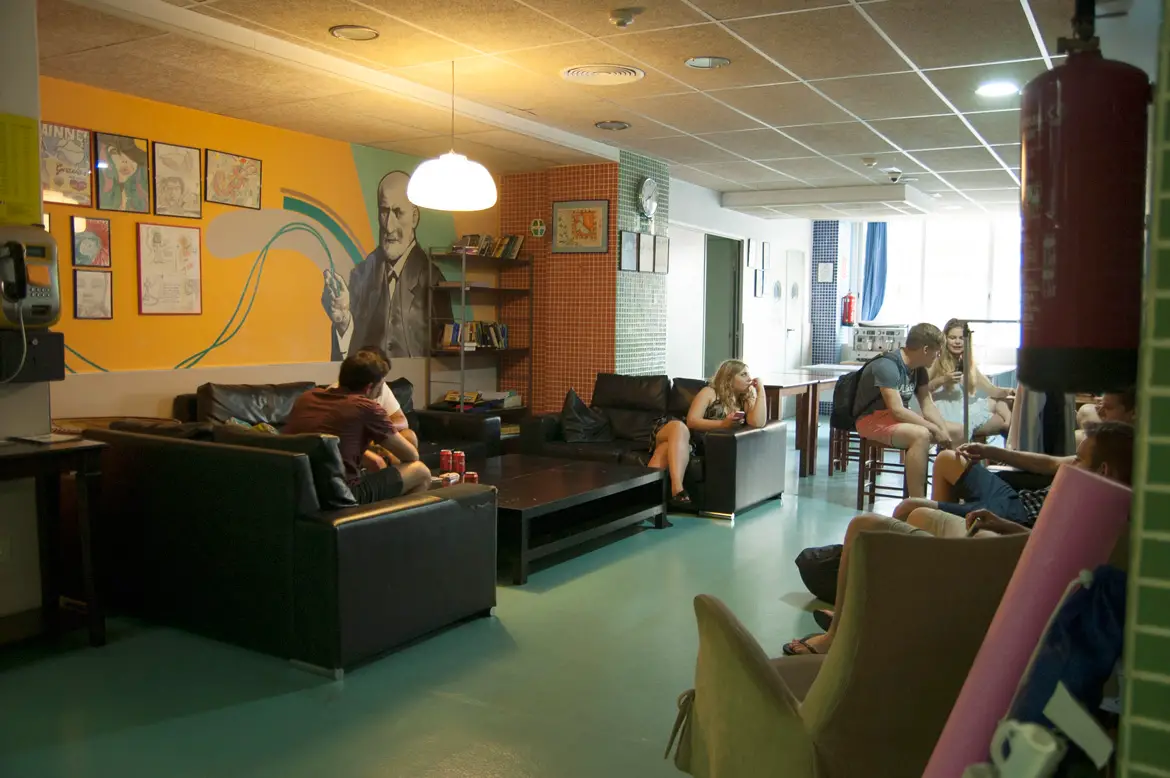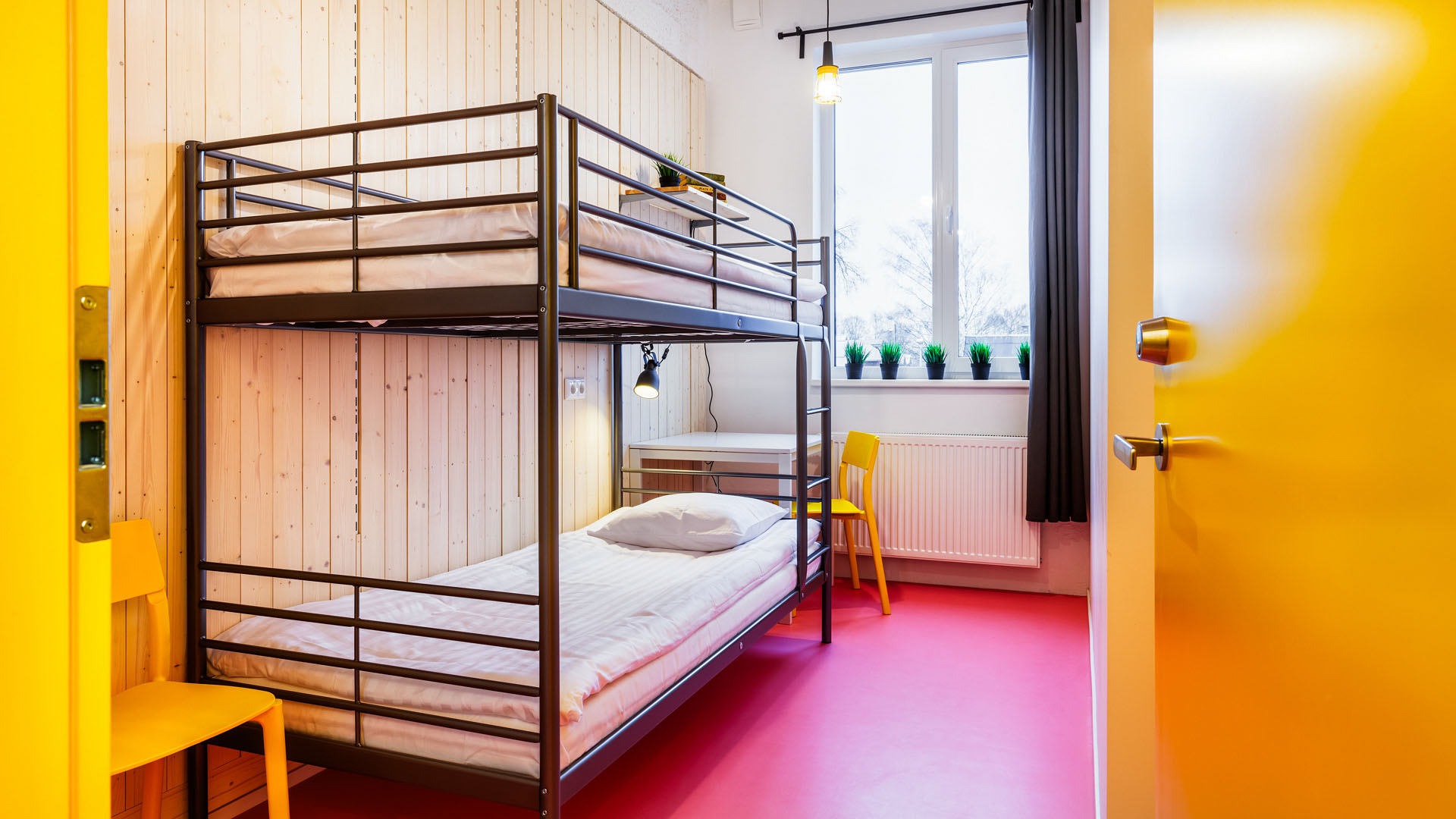A Comprehensive Guide for Newbie Travelers
Here are three easy steps on how to get the most from your first hostel experience.
By Aaron Lynch, Front Range Community College
Travel continues to increase in popularity among students and professionals of the current generation.
Being in college typically implies limited funds. With money as a factor, saving it becomes a priority and hostels are a great way to do so. Many people think of hostels as a step down from hotels, and they are in some aspects.
Sure, you’re not going to get your bed made every morning or have a five-star breakfast waiting for you. But hostels have advantages over traditional hotels that many people don’t think about.
If you find the right inn, utilize the amenities and make some friends along the way, hosteling is sure to improve your trip and save you money.
1. Location, Location, Location
When shopping for accommodation, the first thing you will want to do is check out Hostel World. This website is a great resource because it’s user friendly, has extensive reviews and most importantly, is free.
I can’t stress enough how critical it is to read the reviews; the pictures of the hostel online will undoubtedly look great, but what people actually say about staying there can shed light on some major issues. Reviews help you avoid drags like bed bugs and gnarly bathrooms, while helping you find amenities like fully equipped kitchens and personal lockers.

Always consider the location too. Sometimes you find a place that has all great reviews, but you get there only to realize your bed is a four-mile hike from civilization. Other times you’ll be looking for some peace and quiet and accidentally book a spot directly above the most popular bar in town. Location can literally make or break your experience, so consider it carefully.
Most hostels offer private room upgrades as well. When traveling with a good friend or significant other, I’ve found that it’s often cheaper to split the cost of a room than for each of you to pay for a bed. Sometimes I’ll even splurge on a private just to have my own space for a night.
However, when staying in a dorm, I take the bottom bunk as much as I can. It’s immensely more convenient than the constant climbing up and down. Especially when you have to pee in the middle of the night or are stumbling back from a night out and just want to sleep. Lockers are often under the beds too, meaning the bottom provides easier access to your stuff.
2. Don’t Forget the Essentials
Now that you’ve found the perfect hostel, it’s important that you show up prepared. You won’t see single serving toothbrushes and Q-tips in your hostel’s communal bathroom. Sometimes they have free soap, but as a rule of thumb I bring all my own toiletries.
If you’re in a large dorm, it’s likely that at least one person in there will snore. Some of the perpetrators literally sound like they need medical attention. And if the sawmill on the bunk above you isn’t bad enough, now there’s two people hooking up (and not being shy about it) two beds over. I was actually in this situation once, but I slept soundly with my pair of earplugs.
Whether you’re on a long flight, trying to sleep in or drowning out the somehow foreign sounding moans of that girl with blonde eyebrows, being able to block everything out is absolutely clutch. Pack earplugs. If you lose them buy more.
Most hostels provide lockers but no locks so be sure to bring your own. I’ve even resorted to using my luggage locks before (although this is not recommended). It’s a good idea to have a pair of flip flops or sandals to wear in the shower—bathrooms are shared by loads of people and aren’t going to be perfectly clean every time.
If you like playing drinking games, bring a deck of cards. You might even learn some new games from your dorm mates, and there’s almost always a new rule variation when I play Kings Cup with foreign people.
3. Keep It Classy
In my opinion, the main advantage (other than the money) dorms have over hotels is the social interaction. Private hotel rooms enforce seclusion which is not conducive to meeting strangers.
Aside from the fact that you’re sharing your bedroom with 20 people, hostels generally have common areas and communal kitchens. Youth houses are built for social engagement. I mean it’s not really common to hang out in hotel lobbies and introduce yourself to the comers and goers.
Starting a conversation is as easy as asking where they’re from and what they are studying (or studied). Say hi and try to learn something general about them. Find some common ground you can both relate to; the conversation will flow on its own.
People tend to be receptive to new interactions, especially in such open environments when they’re traveling. I find that people are just as curious about you and your culture as you are about theirs.

If you need to book a bus ticket, an excursion or really anything, your front desk is a good place to start. Even if you just need a recommendation, the staff are usually friendly and knowledgeable of the area; some travelers wind up working at hostels in exchange for a free bed.
When booking excursions, scour for group discounts and invite your new acquaintances. Even just splitting the cost of a cab or your guide’s fee for the day saves everyone money, and the adventures will help solidify your new friendships.
You may find yourself out at a bar with your dorm mates. Practice moderation and drink responsibly, you’re an ambassador for your country so represent well. You don’t want to be remembered as that girl who had too many shots and puked in the cab on the ride back.
And if you find yourself coming home late, don’t be that guy who turns on the light and crescendos into the dorm at 4:30am. Nobody likes that guy. Don’t use the kitchen and then just leave your dirty dishes in the sink. Nobody likes that guy either.
Hostels are typically as easygoing as the people you find in them. Be easy with them and they’ll be easy with you.

















